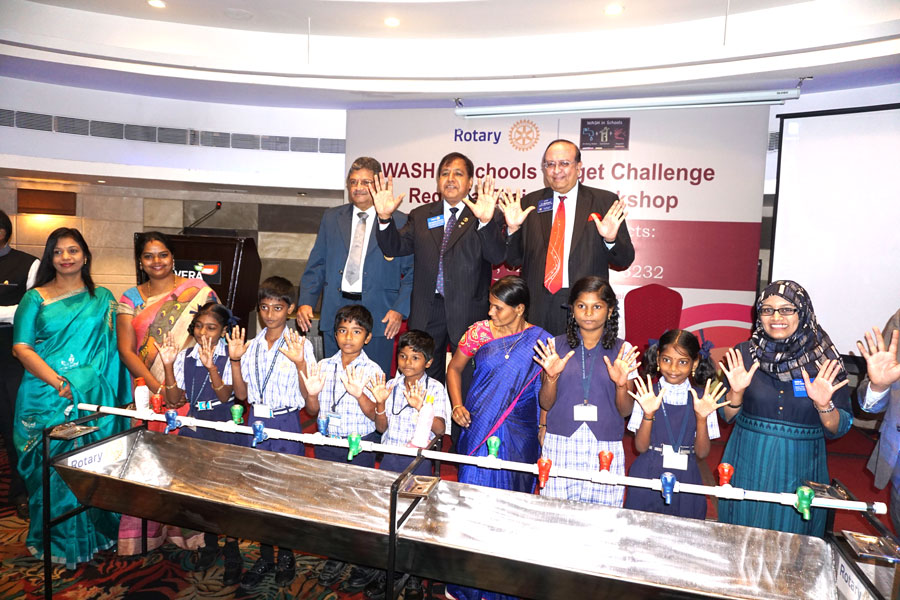Each of the four zones must appoint a DGE at the Rotary India Humanity Foundation (RIHF) and Rotary India Literacy Mission (RILM) to form executive committees that will facilitate a hassle-free implementation of literacy, water and sanitation projects and also help in securing CSR partnerships, said RIPE Shekhar Mehta.

Speaking at the WASH session of the goal-setting virtual seminar Lakhsya, he urged the incoming governors to find new technical cadres and members for Rotary expert bodies for effective implementation of global grant projects. The five-year WASH goals were set in tune with the “national thought process evolved last year after discussions with government officials.” Rotary would strive to implement 10 per cent of government projects in watershed development, restoration of waterbodies, rainwater harvesting, household tap connections, toilet blocks, and programmes related to WASH in schools (WinS) and healthcare facilities (WinHCF).
Against the GoI’s target of one lakh check dams in 2021–26, Rotary will strive to complete 10,000 such facilities during this period at the rate of ₹3 lakh a check dam. Each district has a target of 25 check dams with an overall target of 1,000 such dams in 2021–22. Likewise, Rotary is aiming to implement 7,500 WinS and WinHCF projects out of 55,000 over the next five years; household tap connections to 160 villages (1,000 villages); 20,000 household toilets (1.2 lakh units), 5,000 RWH projects (50,000); and transform 750 waterbodies (lakes, ponds and stepwells) out of 10,00 such restoration work over a five-year period.
Water tap connections
Every home in India will have water on tap by 2024 under the flagship Har Ghar Nal Se Jal programme of the GoI’s Jal Jeevan Mission (JJM). Only 3.27 crore out of 17.87 crore houses had tap connections in 2019, that is 18.5 per cent, which has been raised to 37 per cent (seven crore) in the last one year, said PDG Ramesh Aggarwal, chairman, Rotary India Sanitation Mission. Rotary will also take up retrofitting of piped water supply, grey water management (recycling) and capacity building under the JJM initiatives.
WinS projects being implemented in 14.7 lakh schools, 70 per cent of them government schools, had seven components — gender segregated toilets, drinking water, hand wash stations, MHM, maintenance, behaviour change and capacity building.
Besides improving the school enrolment ratio, WinS projects made children the agents of age with tangible outcome in living standards in the villages, said Aggarwal. In the last six years, one lakh toilets were built by Rotary clubs in India, he said, as this sanitation facility is being extended to all houses as part of ODF-plus strategy launched by GoI.
Restoration of watersheds (check dams) to increase their capacity to absorb rainwater; renovating lakes, ponds and tanks to raise their storage levels; and meet the irrigation needs of the community, besides making them a source of drinking water, are the overall aim of Rotary India Water Mission, said PDG Ranjan Dhingra, president, Rotary India Water Conservation Trust. “There are 7,000 waterbodies across India that can be restored through a gradual process. During 2005–19, we have rejuvenated 300 waterbodies in over 500 villages benefitting over 10 lakh people,” he said. RIDE Dr Mahesh Kotbagi moderated the session and PRID P T Prabhakar summed up the proceedings.





